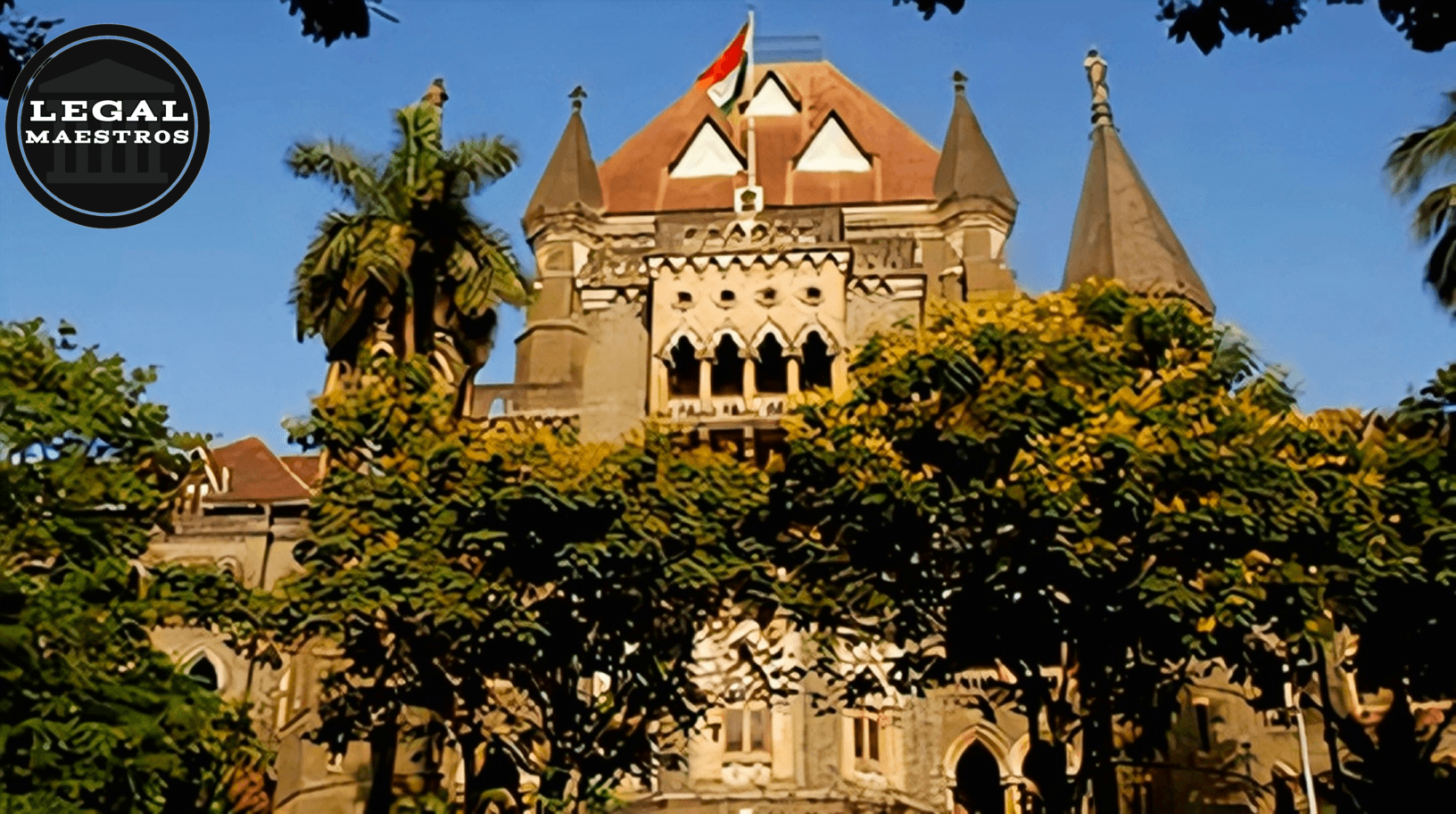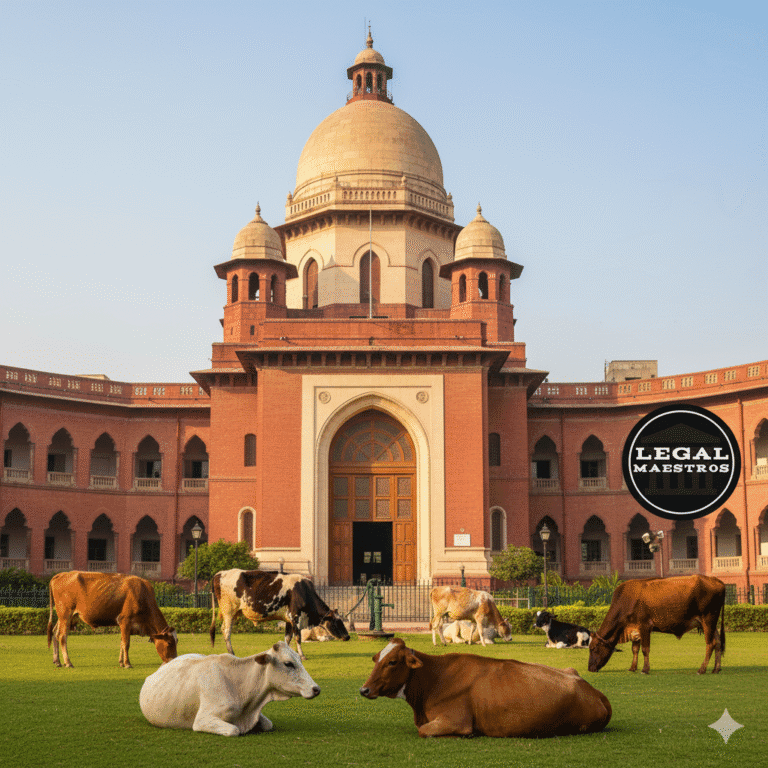
In the persisting conflict between old-fashioned auto-rickshaw drivers and taxis and the new breed of vehicles providing bike taxis such as Rapido, the Bombay High Court has taken an important step. The court dismissed a case filed by Thane-based auto drivers requesting to block the activity of Rapido; the case had broad implications on urban transport and the so-called gig economy. The reasoning of the court was very minimal yet strong, which was that the competition does not constitute an affront to the fundamental rights of a person.
In this article, the legal and constitutional foundation of the judgment made by the High court will be dissected, and the reasons as to why the rebuttal put across by the auto drivers did not hold any weight and how this will affect the future of transportation in Maharashtra.
The Center of the Conflict: Existence and Contest
Four auto-rickshaw drivers protested in the Bombay High Court claiming that the practice of bike-taxi conduct by aggregators such as Rapido was unlawful and it was posing a threat to them earning their livelihoods. They advanced two arguments:
For any queries or to publish an article or post or advertisement on our platform, do call at +91 6377460764 or email us at contact@legalmaestros.com.
- Transport Laws Violation: According to them, bike taxis were using personal cars (the ones which have number plates with white) to provide commercial permits, which is an offence under the Motor Vehicles Act. The commercial vehicles, such as autos and cabs are supposed to have yellow number plates and certain recognizance of the Regional Transport Office (RTO).
- Breach of Fundamental Rights: The drivers claimed that this was an unfair and illegal competition and it was directly affecting their earnings, hence, violating their fundamental rights to the extent of the Constitution of India. In particular, they referred to:
- Article 14 (Right to Equality):They contended that the inability of the government by the failure to implement the law to deal with such illegal bike taxis was a playground with unevil playing bounds.
- Article 19(1) (g) (Right to practice any profession): They argued that the activities of bike taxis went unchecked to interfere with their freedom of practising their profession.
- Article 21 (Right to Life and Livelihood): They alleged that deprivation of earning as a result of bike taxis was a direct assault on right to livelihood which is covered within the meaning of the right to life.
Strong Observations and legal reasoning of the High Court
The bench comprising of Justices Revati Mohite Dere and Neela Gokhale heard the arguments but did not agree. They made some crucial observations yet they have also given a clear legal review to reject the petition.
Competition is Not a Constitutional Infringement: The main focus of the court was that even though one may introduce a new mode of transport and therefore cause competition, that does not prevent constitutional freedom of the exiting players. According to the judges, their basic right is not in any way compromised. It is so many cabs that get into the market annually.” They indicated that accepting this argument will lead to a situation where restriction can be obtained against any new mode of transport, such as Metro, or even the new taxi services. This would render monopoly and eliminate innovation which is not what the law aims to do.
Right to Livelihood does not imply a Right to a Monopoly: Just as the right to livelihood is supported by the Indian Constitution and most importantly under Article 21, the court even made it clear as to the scope of this right. Right to livelihood translates that an individual has the right to a means of providing livelihood but does not confer anyone a right not to be exposed to competition or gain a monopoly in his profession. This interpretation of the court is consistent with Supreme Court rulings in the past that have viewed the right to livelihood as being within the right to life but that the right is not absolute and may be curtailed with factors of reasonableness and the need to better serve the interest of the society.
For any queries or to publish an article or post or advertisement on our platform, do call at +91 6377460764 or email us at contact@legalmaestros.com.
Impact of the Government and New Regulations: The court was also informed that the government of Maharashtra had recently enacted the Maharashtra Bike-Taxi Rules, 2025. These additional regulations that will take place on July 4, 2025, establish the legal basis of controlling bike-taxi services. They need aggregators such as Rapido to have an adequate license of the RTO to proceed with their operation. The attorney of the state also made the court aware that the state was already acting against those operators who were using personal vehicles without permits.
That the court is satisfied as to the reasons why it need not interfere judicially, is because the new legal framework has been put in place and the government has assured that it would do something to address illegal operators. According to the judges, the issue on whether the new rules should be implemented rested on the hands of the government and if the drivers felt that the same rule was continuously violated, they could file a formal complaint with the state.
An Auto Drivers Service Critique
The High Court was also not backward in making certain caustic comments regarding the bad service especially when it comes to traditional auto-rickshaw and taxi drivers. The judges emphasized the similar experience of commuters, commenting, “This will end only when you end with the refusal to take people.” They emphasised, “We have witnessed in the streets the behaviour of taxi and rickshaw drivers, their attitude towards the customers, their arrogance and boisterousness. Already we have all been exposed to the same.”
For any queries or to publish an article or post or advertisement on our platform, do call at +91 6377460764 or email us at contact@legalmaestros.com.
This court observation throws some light on one of the main reasons to the popularity of the app-based services. They are sometimes favored by the consumers due to their convenience, clear visibility, and due to the mere fact that they offer a sure alternative to drivers who may decline a short-distance service or request a fixed and increased tariff. The remarks of the court support the reflection that improved service can be used as a more successful reaction to the rivalry than a legal prohibition.
Thinking Big: An Urban Transport Future
The decision of the Bombay High Court forms part of a more global trend of courts in India struggling with the implications and possibilities new technology and new forms of business have on the transport industry. The fact that auto-rickshaw drivers have a fair argument of their livelihoods should not distract the courts as it has always demonstrated the unwillingness to raise and fight the law to preserve what is already there; by the competition of a competitive market.
This ruling, therefore, creates a strong signal that instead of traditional transport companies resisting the entrance of innovative and new services, they need to evolve, enhance the quality of their services and collaborate with the government to create a legal and equal environment. To the commuters, this is a victory since it translates to increased choices, improved service, and expansion of transport modes that are modern and convenient.
For any queries or to publish an article or post or advertisement on our platform, do call at +91 6377460764 or email us at contact@legalmaestros.com.




![Research Assistantship @ Sahibnoor Singh Sindhu, [Remote; Stipend of Rs. 7.5k; Dec 2025 & Jan 2026]: Apply by Nov 14, 2025!](https://legalmaestros.com/wp-content/uploads/2025/11/Gemini_Generated_Image_s0k4u6s0k4u6s0k4-768x707.png)
![Karanjawala & Co Hiring Freshers for Legal Counsel [Immediate Joining; Full Time Position in Delhi]: Apply Now!](https://legalmaestros.com/wp-content/uploads/2025/11/Gemini_Generated_Image_52f8mg52f8mg52f8-768x711.png)
![Part-Time Legal Associate / Legal Intern @ Juris at Work [Remote]: Apply Now!](https://legalmaestros.com/wp-content/uploads/2025/11/ChatGPT-Image-Nov-12-2025-08_08_41-PM-768x768.png)
![JOB POST: Legal Content Manager at Lawctopus [3-7 Years PQE; Salary Upto Rs. 70k; Remote]: Rolling Applications!](https://legalmaestros.com/wp-content/uploads/2025/11/ChatGPT-Image-Nov-12-2025-08_01_56-PM-768x768.png)